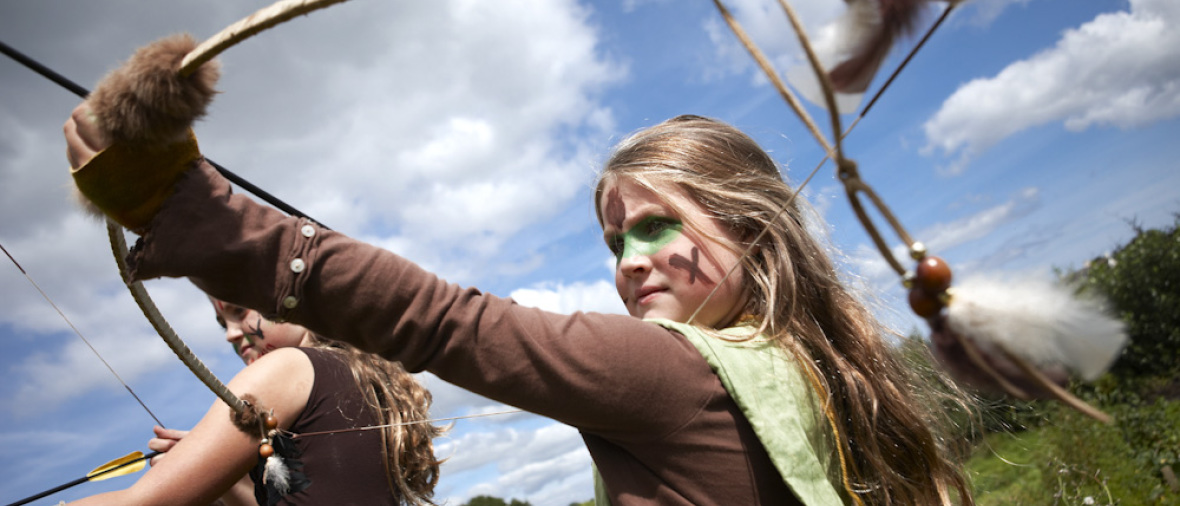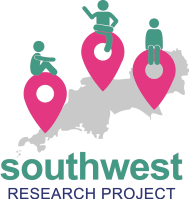
The South West Research Project
Researching small community groups.
Small community groups
There are an estimated 900,000 small community groups operating across the United Kingdom. These small community groups are under-researched, under-resourced and under valued and yet they significantly enhance community life.
South West Foundation / South West Community Matters have always focussed on supporting and funding these small groups. Now for the first time using historic and new data, South West Community Matters has embarked upon a range of research programmes considering the nature of these small groups. the reports published will include:
-
an overview of the stastical research
-
a guide on how to fund small groups
-
women's involvement in small community groups
-
support for small community groups
-
iinvestigation into groups working with minority communities
South West Foundation and now South West Community Matters has always been involved in research, and has previously undertaken a wide range of research projects which focus mainly, but not exclusively, on the voluntary and community sector.
Other research has included evalutions of the organisation's own grant programmes, projects and activities; reporting on joint and other funded programmes, projects and activities, and publications produced by Dr. Janice Crawley, as part of her progression towards gaining her PhD.
The publications are listed in order of their year of publication. Below each document there is a note of the title and a summary contents.
The most recent publications are listed first, and they are all downloadable as pdf files
Selected publications for download
Creating Changes - Jan Crawley
A report looking at the Health Lottery funded programme on Community Based Participatory Research in Torbay
Adobe Acrobat document [2.6 MB]
An investigation into the contribution that women are making to communities through their involvement in small VCSOs operating in the SW Region - Dr Jan Crawley - Ph D thesis
This research investigated the contribution that women are making to communities through their involvement in small Voluntary and community sector organisations (VCSOs) operating in the South West Region of England.
The research explored the roles the women play and what type of involvement they have in the development and delivery of services through small VCSOs. It also considered what motivates the women to become involved and to stay involved in these small groups and how visible and valued that involvement is.
The research utilised a feminist approach with mixed methods to provide a space for the voices of the women involved to be heard and over
200 women from small ‘Below the Radar’ (BTR) VCSOs took part including over 180 by completing scoping questionnaires, thirty-two in two focus groups and twelve who took part in semi-structured
interviews.
The study found the context and circumstances in which small VCSOs operate contained factors, which have either encouraged or discouraged
the involvement of women in their communities, including issues related to women’s current position in society. The commitment, passion and desire to carry out work, which would benefit the whole
community, were among the key reasons the women undertook the work, rather than financial reward or status. The work of the women involved in the research was also found to contribute to stocks of
social capital in those communities.
The research analysed the degree to which recent governments have sought to utilise the VCS to assist with the delivery of their own
agendas.
The research suggests that women’s involvement within the smaller BTR VCSOs could be conceptualised in a framework called the ‘Women Alchemists’ and that the use of the term ‘Women Led Organisations’ could more fully build on the contribution of women and to nurture it in a way which enables it to grow and be sustained without altering its nature.
Adobe Acrobat document [2.9 MB]
Jan Crawley and Rosa Watkin
Crisis and Contradiction
The issues facing small Voluntary and Community Organisations.
Adobe Acrobat document [180.3 KB]
This report is based on two focus groups which were held, one in Bath and North East Somerset and one in Cornwall, to look at the issue of women’s involvement in small Voluntary and Community Groups. We also sent out questionnaires.
The focus groups were organised by South West Foundation and sponsored by Changes UK and Women Take Part. We would also like to thank Red Kite and East Cornwall CVS for their support and facilitation of the groups. South West Foundation is an organisation supporting small Voluntary and Community Sector Organisations in the South West Region.
Women Take Part is a piece of work funded by the Government Equality Office, looking at the participation of women, in particular under-represented women, in governance and decision making, in both community and public life
The project collected information about two sides of the story: ’what works' in terms of approaches, initiatives and learning models that encourage different groups of women to become more involved and ‘what needs to happen' so that structures, policies and organisations work in ways that encourage the recruitment and support of more women.
Adobe Acrobat document [849.7 KB]
This study was carried out in June-August 2008. 84 questionnaires were sent out to the chairs of the 36 forum members of the South West Seniors Network. Some of the larger networks completed more than one questionnaire. The questionnaires were submitted largely by forum members who are involved in the management and running of the forums. There was a 52% response on the questionnaires.
In addition to the questionnaires a selection of more in depth face to face and telephone interviews were undertaken with leading members of the
Forums throughout the region along with visits to the forums themselves.
These older people's forums have magically combined small grants investment with an appropriate community development approach that has encouraged the forums to develop, with outside support but with inner integrity.
The older people’s forums, with their reach, their ability to involve the local community and provide a vehicle for individuals in communities to contribute, are worthy of the attention and investment of both local statutory agencies and regional bodies alike.
The Forums are a major force to be reckoned with and are now ‘coming of age.’
Adobe Acrobat document [849.3 KB]
Empowering Communities reports
The South West Regional ‘Empowering Communities’
Consortium of the National Empowerment Partnership commissioned a set of reports reflecting research and other activities undertaken through the South West Empowerment Development
Project. They were:
Report 1 An Overview of the Learning from the South West Empowerment Development Project
Report 2 Engagement and Empowerment among Black and Minority Ethnic and other Equality Communities in the South West of England: A Case Study
Report 3 Participation and Empowerment of Children and Young People in the South West of England: A Case Study
Report 4 Engagement and Empowerment among Older People in the South West of England: A Case Study
Report 5 Engagement and Empowerment in Rural Local
Authorities in the South West of England: A Case Study
Report 6 Engagement and Empowerment in an Urban Unitary Authority in the South West of England: A Case Study
Report 7 No Boundaries: A Study of Networks and Empowerment
Report 8 Engagement and Empowerment: Measurement and Indicators
All the reports were researched and written by a joint
team from The Evaluation Trust and South West Foundation, with support from Professor Marilyn Taylor, Professor of Urban Governance and Regeneration at the University of the West of
England. The team members were:
Philippa Chapman; Erica Lewis; Maria Clarke; Lori Streich; Jan Crawley; Sarah del Tufo; Andrew Edgington; Jenni Wilson; Lesley Frazer
These reports, as with all research, reflect the views of those who took part and are a snapshot in time and there may be other perspectives that are not recorded.
PLEASE NOTE: NOT ALL ARE AVAILABLE TO DOWNLOAD
Adobe Acrobat document [291.3 KB]
Adobe Acrobat document [351.6 KB]
Adobe Acrobat document [630.8 KB]
Adobe Acrobat document [1.6 MB]
Adobe Acrobat document [368.7 KB]
Funders Footprints - Jan Crawley
This study looks at the current view of funders and funding from the perspective of the Voluntary and Community Sector in the South West Region. Based on the views of over 350
mainly smaller Voluntary and Community Organisations, it listens to the Sector’s experiences of working with a range of funders, including Government funding streams and Independent
Trusts
and Foundations. It is the Sector’s impression not just of the way in which funding is delivered, but also a reflection on the overall ‘footprint’ that funders make on the Sector when
seeking to support it.
Adobe Acrobat document [322.1 KB]
Communities without walls - ed. Jan Crawley
The relationship between housing associations and the Third Sector.
Adobe Acrobat document [934.4 KB]









